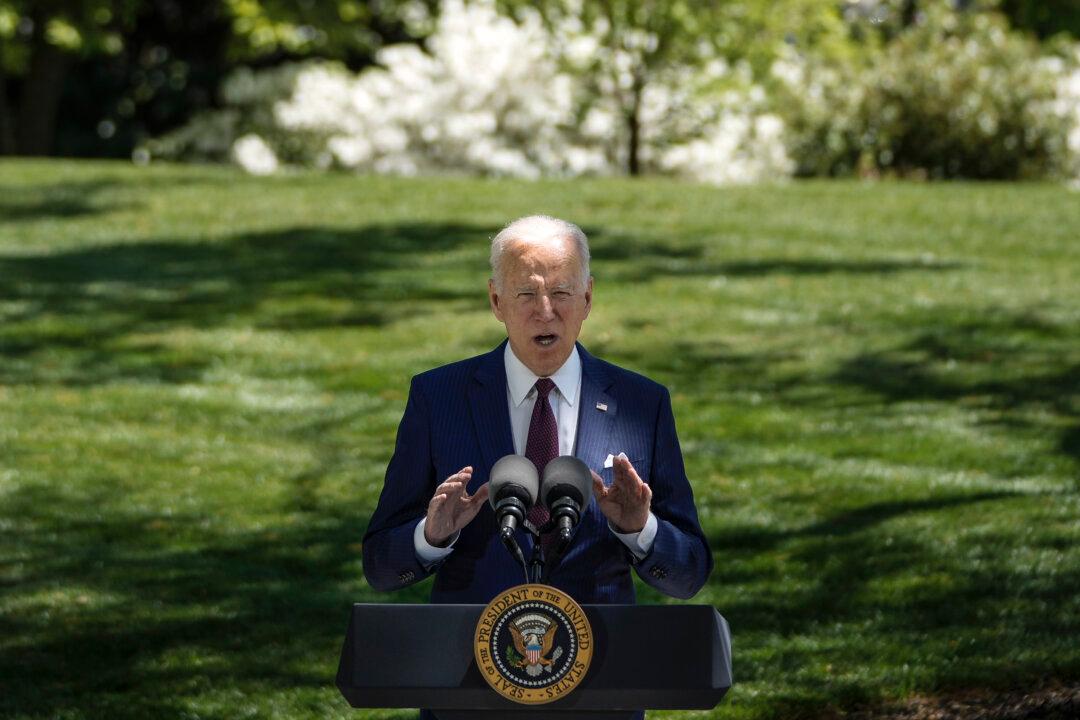Commentary
The Biden administration apparently can’t say the words “China” and “regime” in the same sentence. The U.S. government used to call China a “regime,” at least during the Trump presidency, and back in the 1950s. China calls that “Cold War thinking,” as if it were a bad thing when facing a genocidal regime trying to take over the world. I say we need more Cold War thinking, along with some Cold War action, given what apparently now includes eugenics (though Reuters adroitly avoids use of the term while at the same time breaking the news).
I noticed the failure to call a regime a regime when reading Secretary of State Antony Blinken’s July 12 comments to the press on genocide legislation. One would think that China’s “regime” would be front and center at such an event given the country has an ongoing and recognized genocide against the Uyghurs. But Blinken barely mentioned the C-word, and apparently did not think the issue was important enough to make time for extended questions that might get to the Uyghur genocide, or call China a regime. He waxed poetic about “Cuba’s authoritarian regime” and the “Cuban regime,” which is a regime but not as regime as China. You get it. I get it. But apparently, the State Department doesn’t get it. I know of no genocide in Cuba, though it’s certainly a rotten regime.
A State Department spokesperson did not immediately reply to a question I posed about whether the Department has any objective criteria or metrics regarding when to call a country a regime. So I’ll reply instead: regimes are the governments run by dictators we don’t like. Cuba, Syria, Iran, and North Korea all have “regimes.” China doesn’t. Saudi Arabia doesn’t. Singapore doesn’t. So the question becomes, why aren’t we now calling the world’s most dangerous and genocidal regime, at a press conference on genocide, by its proper name?
Secretary Mike Pompeo broke the mold at the State Department when he published a statement on Jan. 19, 2021, that in no uncertain terms recognized the genocide and the regime committing genocide by name. “For the past four years, this Administration has exposed the nature of the Chinese Communist Party and called it what it is: a Marxist-Leninist regime that exerts power over the long-suffering Chinese people through brainwashing and brute force. We have paid particular attention to the CCP’s treatment of the Uyghur people, a Muslim minority group that resides largely in the Xinjiang Uyghur Autonomous Region in Western China.”
Since then, our government, including the State Department, regressed back into prevaricating about China, unable to call a genocidal government a “regime.” Why? Because Blinken is scared of Beijing? Because we (and by “we” I mean our biggest American corporations) are still trying to do billions of dollars worth of business with the regime, and calling it as such would be impolite? Because Secretary of the Treasury (where the big corporations have most of their influence) Janet Yellen convinced President Biden to forbid calling it by name?
Not only did Pompeo call China a regime. Back in the 1950s, the U.S. government did it all the time. A 1953 National Security Council document, marked “top secret,” declassified, and published in the State Department’s historical documents section, reads, “The nationalist and Communist imperatives of the Peiping [Beijing] regime impel the Chinese Communists toward eventual recapture of the historically Chinese territories which the U.S. and the West now hold or protect; toward eventual expulsion of Western or Western-allied forces from adjacent mainland areas [e.g., Taiwan and Vietnam]; and toward substitution of Chinese Communist influence for that of the West in the other areas of the Far East [e.g., South Korea and Japan]. Even if particular Far Eastern issues were resolved to the satisfaction of Peiping, the Chinese Communists, as Communists, would continue to maintain a basic hostility to the West in general and the U.S. in particular.”
At least in the 1950s, and under President Trump, U.S. government departments called a regime a regime. Today we should be saying the same thing, but out loud. Hypocrisy and appeasement in the face of a genocidal bully is no way to protect democracy.
Anders Corr has a bachelor’s/master’s in political science from Yale University (2001) and a doctorate in government from Harvard University (2008). He’s a principal at Corr Analytics Inc., publisher of the Journal of Political Risk, and has conducted extensive research in North America, Europe, and Asia. He authored “The Concentration of Power” (forthcoming in 2021) and “No Trespassing,” and edited “Great Powers, Grand Strategies.”





